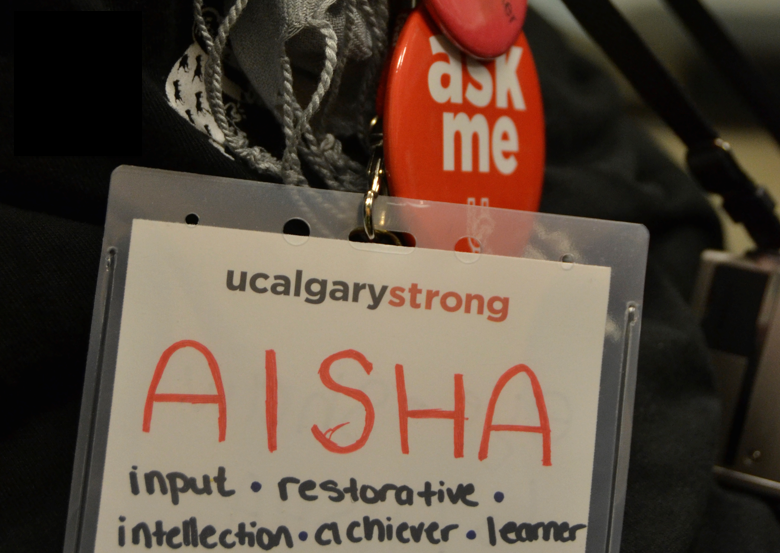
Students learn their strengths and how to own them through training.
Travis Dickie
June 28, 2017

If you were asked right now, what is your greatest strength, would you be able to answer confidently? For many of us, a response can be difficult to put into words — and even more difficult to identify in practice.
Since 2013, the University of Calgary has used the positive-psychology-based CliftonStrengths for Students to give students, faculty and staff an opportunity to discover, own and apply their top talents. Increased self-awareness, developing stronger teamwork skills in academic classes and co-curricular teams, and career exploration are just a few of the ways more than 8,000 members of our campus community have been able to put their strengths into action.
To date, strengths-based programming has been used in student life programs like Camp LEAD and is a core part of programming in Career Services. Human Resources offers it in their slate of U-programming and it is part of the SU Wellness Centre’s Roots of Resiliency program. As a piece of the overall UCalgaryStrong initiative, the strengths programming matches closely to the goals of our Campus Mental Health Strategy, particularly around helping students develop resilience, one of the six focus areas of the strategy.

Students learn their strengths and how to own them through training.
Travis Dickie
Applying strengths in academic courses and student programming builds confidence
In 2016-2017, CliftonStrengths for Students was used in 30 sections of seven courses in four faculties, where course groups discussed their strengths, as well as other key aspects of effective group work like communication and conflict resolution.
“Working from a strengths-based approach has enhanced students’ confidence in their ability to succeed in the program. Being aware of their strengths has helped them learn how to use them in group work, work more collaboratively and have a better understanding of the areas where each of them excel,” says Brenda Juby, instructor in the nursing faculty.
“Students have said that having an instructor work from a strengths-based philosophy made them feel valued and cared for as a student, but also included, accepted and valuable to a team.”
If you’re interested in learning more about CliftonStrengths for Students to enhance group work within your classes and students’ overall academic success, please email Gareth McVicar, manager with Student Leadership Development.
Strengths-Based Education training opportunity
This summer, a training session will also be offered on-campus by a certified facilitator in Strengths-Based Education. This training will provide participants an opportunity to learn about positive psychology and the history of CliftonStrengths for Students. With experiential examples of how staff and faculty can implement the program into student programming, training, interview questions and group work among other areas, this training is beneficial for anyone working with students.